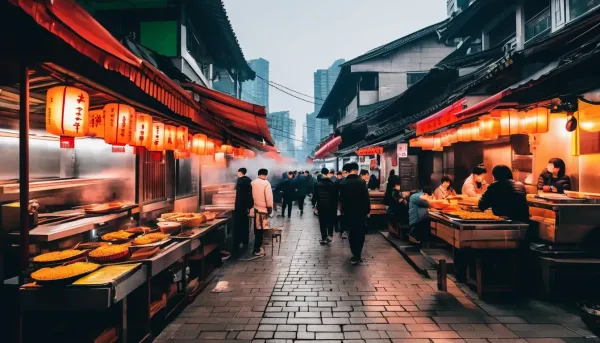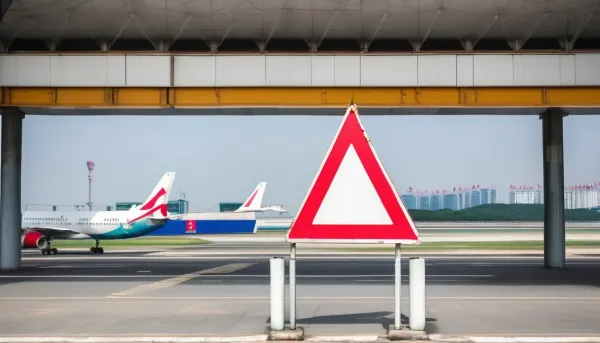Prohibited Items for Entry into China
When traveling to China, be aware of strict customs regulations. Prohibited items include weapons, counterfeit currency, and certain biological materials. Travelers with prescription medications should be prepared to provide documentation.

Understanding China's Customs Regulations
When traveling to China, it's essential to be aware of the country's strict customs regulations. These rules are in place to protect China's citizens and environment. Bringing prohibited items into the country can result in serious consequences, including fines, detention, and even deportation.
A Comprehensive List of Prohibited Items
- Weapons and Related Items:
- Firearms of all types
- Imitation firearms
- Ammunition
- Explosives
- Any item that can be used as a weapon
- Counterfeit Currency and Securities:
- Forged bank notes
- Counterfeit stocks, bonds, or other financial instruments
- Materials Harmful to China:
- Publications, films, recordings, or digital media that are deemed to undermine China's political, economic, cultural, or moral systems
- Pornographic materials
- Poisonous Substances:
- Highly toxic chemicals
- Narcotics:
- Opium
- Morphine
- Heroin
- Marijuana
- Other addictive drugs or psychotropic substances
- Biological Materials and Organisms:
- Fresh fruits and vegetables, especially those from the Solanaceae family (e.g., tomatoes, potatoes)
- Live animals (except dogs and cats)
- Animal products
- Plant seeds and cuttings
- Pathogens and pests
- Animal carcasses
- Soil
- Genetically modified organisms
- Any products from regions affected by plant or animal diseases
- Contaminated Goods:
- Food, drugs, or other items that pose a health risk to humans or animals
- Items from epidemic areas
Prescription Medications
For travelers with chronic conditions requiring ongoing medication (such as hypertension, diabetes, or allergies), China's customs generally allows a reasonable quantity for personal use. However, it's essential to have the following documentation:
- Prescription: A prescription from a qualified healthcare provider detailing the medication, dosage, and duration of treatment.
- Original Packaging: The medication should be in its original packaging with the manufacturer's label.
- Sufficient Quantity: While a general rule of thumb is a one-month supply, it's advisable to consult with Chinese customs or the Chinese embassy beforehand, especially for large quantities or controlled substances.
Special Considerations for Controlled Substances
If you need to bring controlled substances (e.g., those containing narcotics or psychotropic substances), even for medical purposes, you'll need additional documentation:
- Approval from Chinese Authorities: You'll likely need to apply for a "Certificate for Carrying Pharmaceuticals into the People's Republic of China" from the Chinese embassy or consulate in your home country.
- Detailed Medical Documentation: This may include medical records, treatment plans, and letters from your healthcare provider explaining the necessity of the medication.
General Tips
- Declare All Medications: Always declare all medications, even over-the-counter drugs, when going through customs.
- Consult with Your Doctor and Pharmacist: Discuss your travel plans with your healthcare providers to ensure you have adequate medication and understand any specific requirements.
- Check for Updates: Customs regulations can change, so it's advisable to check the latest information before your trip.
Additional Considerations
- Quantity Restrictions: Even for permitted items, there may be quantity restrictions. For example, the amount of alcohol or tobacco products you can bring in is often limited.
- Declaration: It is crucial to declare all items you are carrying when going through customs. Failure to do so can lead to penalties.
- Local Laws and Regulations: Always check the latest regulations before your trip, as customs rules can change.
Why These Restrictions?
These strict regulations are in place for several reasons, including:
- National Security: Prohibiting weapons and harmful materials helps to maintain public safety.
- Economic Protection: Restrictions on certain agricultural products protect domestic industries.
- Cultural Preservation: Controlling the flow of information helps to preserve China's cultural identity.
- Environmental Protection: Restrictions on biological materials help to prevent the introduction of invasive species.
By following these guidelines and being prepared with the necessary documentation, travelers with medical needs can typically bring their required medications into China. However, it's crucial to respect Chinese customs regulations and prioritize the health and safety of both yourself and others.



